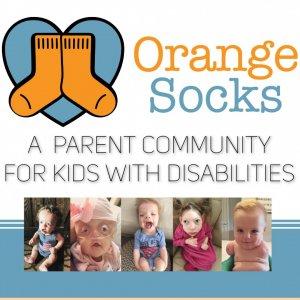Inspiring life despite a diagnosis

Sock Talk- NIPT
In this episode Dr. Gerald Nebeker talks about NIPT prenatal testing and how the results are often misinterpreted.
NIPT Testing
What is NIPT?
NIPT stands for noninvasive prenatal testing. Doctors often use NIPT to screen for genetic abnormalities. It is considered non-invasive because the test requires blood from the mother. They are then able to differentiate between the fetus’ DNA and the mother’s. While this test is considered to be very accurate, Gerald points out some cautions.
“It’s important to know that it's a screening test only. A positive result doesn’t necessarily mean the baby has a condition. The test results show that the baby has an increased risk but it cannot diagnose a disorder”
Beware of how statistics are represented
The NIPT test boasts a 99% accuracy or 99% sensitivity. However, if you receive a positive result, this does not mean that your child has a 99% chance of having that condition.
When quoting Bloom Life Gerald stated, “NIPT can detect over 99% of fetuses with Down syndrome but a positive result on a NIPT does not mean that you have a 99% chance of having a baby with Down syndrome.”
Chance result
Sometimes NIPT gives a chance result when the baby does not actually have the condition. For instance if you are given a high chance result for Down syndrome there is 20% chance the baby does not have Down syndrome, for Patil syndrome there is a 50 chance the test is wrong and for Edwards syndrome there is a 60% chance the test is wrong.
You will still need to get further testing such as an amniocentesis to confirm a diagnosis.
Why get NIPT?
Even though NIPT there can result in a false positive or negative result, when used as a screening tool, it can be effective in helping to determine if further testing is required. Some women have mentioned that because nothing is guaranteed they wouldn't want to have a NIPT done. Others have stated that they want to be prepared for the possibility of having a child with a condition the test screens for.
Gerald said, “I’ve done a number of Orange Socks interviews where a screening test indicated something wrong with the baby and the parents were strongly encouraged to terminate the pregnancy. Only to find when the baby was born that he or she didn't have that condition.”
Tamara and Matthew's experience with NIPT
While Tamara was pregnant with their son Grayson, they had a NIPT done to determine the gender of their baby. They received the unexpected news that their child was at high risk for Down syndrome.
During their follow up interview, after Grayson was born, Tamara and Matthew shared their experience. Even knowing their screening results, they grieved the fact that Grayson did in fact have Down syndrome. However, they have come to realize they had nothing really to worry about.
>>See Tamara and Matthew's interview here






 Visit Podcast Website
Visit Podcast Website RSS Podcast Feed
RSS Podcast Feed Subscribe
Subscribe
 Add to MyCast
Add to MyCast